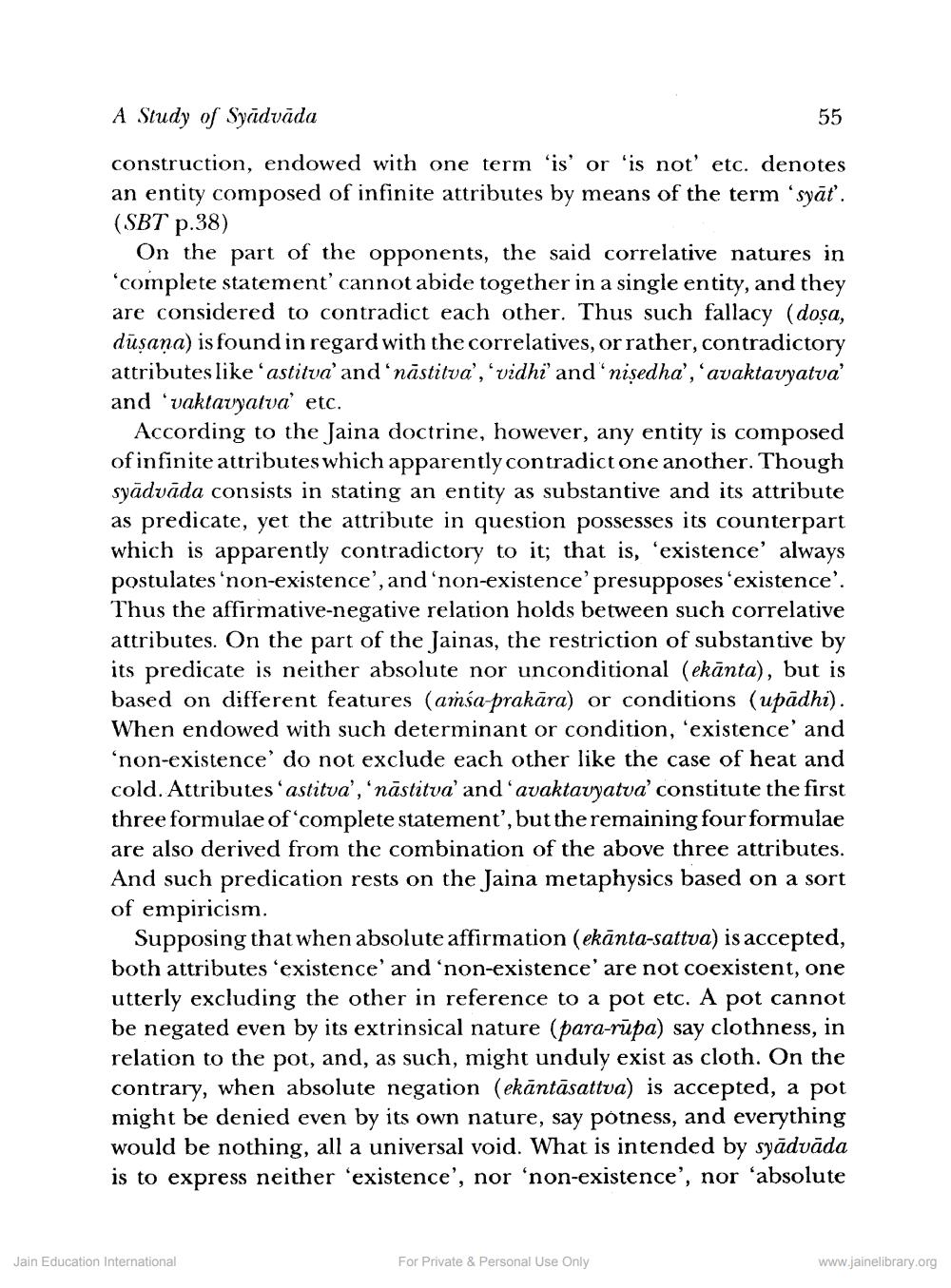________________
A Study of Syadvāda
55
construction, endowed with one term 'is' or 'is not' etc. denotes an entity composed of infinite attributes by means of the term 'syāť. (SBT p.38)
On the part of the opponents, the said correlative natures in 'complete statement' cannot abide together in a single entity, and they are considered to contradict each other. Thus such fallacy (dosa,
ina) is found in regard with the correlatives, or rather, contradictory attributes like'astitva' and 'nāstitva', 'vidhi' and ' nisedha', 'avaktavyatva' and 'vaktavyatva' etc.
According to the Jaina doctrine, however, any entity is composed of infinite attributes which apparently contradict one another. Though syādvāda consists in stating an entity as substantive and its attribute as predicate, yet the attribute in question possesses its counterpart which is apparently contradictory to it; that is, 'existence' always postulates 'non-existence', and 'non-existence' presupposes 'existence'. Thus the affirmative-negative relation holds between such correlative attributes. On the part of the Jainas, the restriction of substantive by its predicate is neither absolute nor unconditional (ekānta), but is based on different features (amsa-prakāra) or conditions (upādhi). When endowed with such determinant or condition, existence and 'non-existence' do not exclude each other like the case of heat and cold. Attributes 'astitva', 'nāstitva' and 'avaktavyatva' constitute the first three formulae of complete statement', but the remaining four formulae are also derived from the combination of the above three attributes. And such predication rests on the Jaina metaphysics based on a sort of empiricism.
Supposing that when absolute affirmation (ekānta-sattva) is accepted, both attributes 'existence' and 'non-existence' are not coexistent, one utterly excluding the other in reference to a pot etc. A pot cannot be negated even by its extrinsical nature (para-rūpa) say clothness, in relation to the pot, and, as such, might unduly exist as cloth. On the contrary, when absolute negation (ekāntāsattva) is accepted, a pot might be denied even by its own nature, say pótness, and everything would be nothing, all a universal void. What is intended by syāduāda is to express neither 'existence', nor ‘non-existence', nor "absolute
Jain Education International
For Private & Personal Use Only
www.jainelibrary.org




